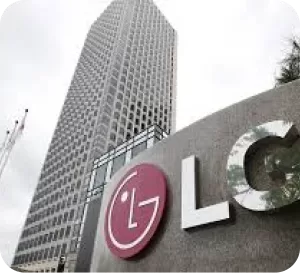CLIENT
Get to Know Matahari Departement Store
Get to Know Matahari Departement Store
Matahari is the largest retail platform in Indonesia, with 155 stores across 81 cities nationwide, and an online presence at Matahari.com. Employing approximately 30,000 staff and partnering with around 600 local and international suppliers, Matahari has provided quality, trendy, and affordable clothing, beauty, and footwear products to Indonesia's growing middle class for over 60 years.
The company has received numerous industry awards—both nationally and internationally—including the Top 100 Most Valuable Brands by Brand Finance, Top 500 Retail Asia Pacific from Retail Asia, Euromonitor & KPMG; Brand Asia 2018 – Top 3 Most Powerful Retail Brands in Indonesia by Nikkei BP Consulting, among others.

CHALLENGES
We Help Companies Design the Right Solutions
Omnichannel Retail Strategy
Matahari has adopted an omnichannel retail strategy that allows customers to purchase products online and pick them up in-store. Various delivery and payment options, both online and offline, have been introduced to tailor the consumer experience to individual preferences and enhance user satisfaction. The key components of this strategy include migration to the Magento 2 platform, enabling an omnichannel experience with product and offer synchronization across six channels: multi-location warehouse management, online appointment booking, click-and-collect services, and mobile app development.
Fragmented Customer Experience
Before the transformation, Matahari struggled with managing a fragmented customer experience across their online-to-offline (O2O) interactions. There was no unified brand messaging, and the customer service strategy lacked continuity in the shopping journey between the online store and physical locations, which still relied on manual workflows. This resulted in a disconnected customer journey across both physical and online channels.
Limitations of Legacy Technology
Matahari's legacy technology imposed constraints that hindered technical performance. The outdated marketplace architecture was not aligned with Matahari's single-brand website. Issues such as slow page load times, complicated checkout processes, and poor product search capabilities were common. Additionally, maintenance and update costs were high, with limited flexibility and personalization compared to modern technology systems.
Suboptimal eCommerce Revenue
Despite a strong offline presence, Matahari was not maximizing its online revenue potential. Only 20% of stock was sold through the eCommerce store compared to 80% in offline sales. This discrepancy highlighted the need for solutions to maximize online revenue.

SOLUTIONS
Our Key to Success
Strategi Ritel Omnichannel
Matahari has adopted an omnichannel retail strategy that allows customers to purchase products online and pick them up in-store. Various delivery and payment options, both online and offline, have been introduced to tailor the consumer experience to individual preferences and enhance user satisfaction.
The key components of this strategy include migration to the Magento 2 platform, enabling an omnichannel experience with product and offer synchronization across six channels: multi-location warehouse management, online appointment booking, click-and-collect services, and mobile app development.
Rapid Launch with Minimum Viable Product (MVP)
SmartOSC implemented a Minimum Viable Product (MVP) approach to accelerate the launch timeline and minimize revenue impact. This involved creating an essential solution package for the initial rollout, continuously analyzing results, developing improvements based on insights, and relaunching to enhance service offerings. This agile process ensures a quick response to market dynamics, prioritizing speed and quality throughout the project.
Efficient Enterprise Technology
To replace the outdated eCommerce site based on an unsuitable marketplace structure, SmartOSC migrated Matahari to Adobe’s Magento Commerce enterprise platform. This shift allowed Matahari to move away from the marketplace model and focus on building and promoting its brand.
These improvements resulted in faster page load times, a more efficient checkout process, and significantly enhanced site performance. Regular maintenance and upgrades are included in an integrated package, making it more cost-effective.
Multi-Brand Launch
SmartOSC facilitated a multi-brand launch to capture previously missed online revenue opportunities. A dynamic system was introduced, allowing Matahari to sell and promote products from various brands in a flexible and customizable manner.



